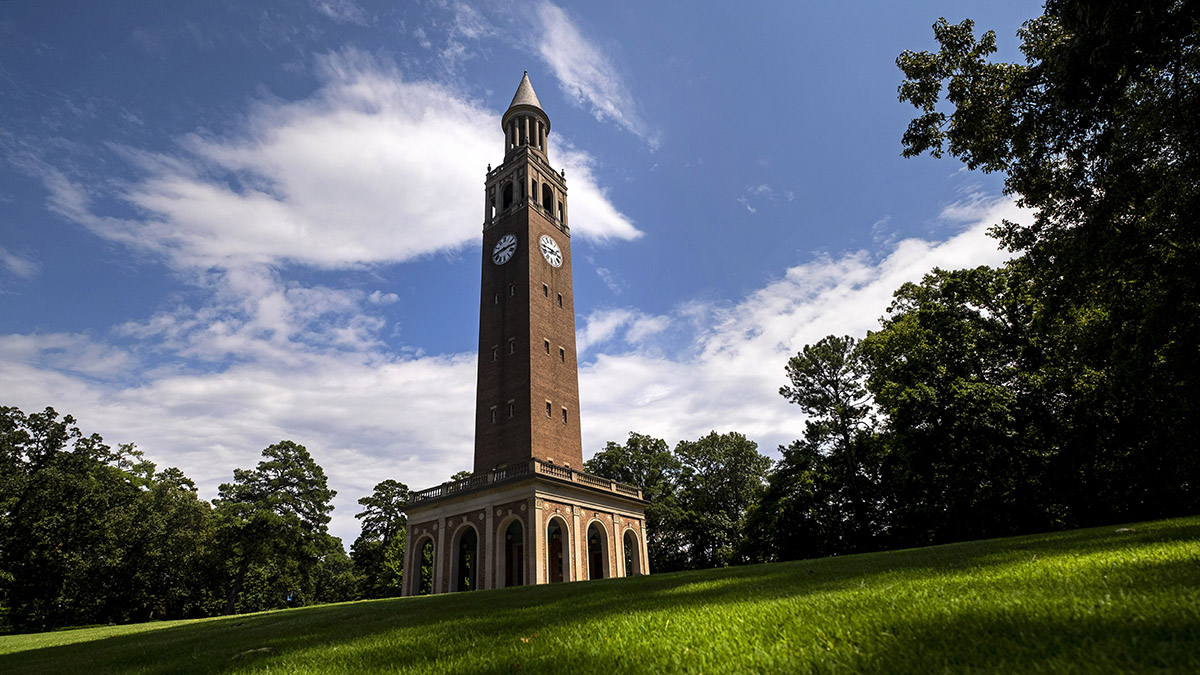University responds to more than 200 reports of COVID-19 violations
A few broke the rules flagrantly, but most cases are unintentional or because of poor judgment.

The four COVID-19 citations issued last week to students by the Town of Chapel Hill were not the first consequences faced by violators.
Since the beginning of the fall semester, Carolina Housing and the Office of Student Conduct have responded to more than 200 on-campus complaints and referrals and another few dozen from off campus about violations of community standards, said Jonathan Sauls, associate vice chancellor for student affairs. The University also has a strong partnership with the Chapel Hill Police, who are focused on educational and enforcement efforts in the town. The police notify University administrators of warnings and citations issued off-campus, so they can follow up immediately.
“Overwhelmingly, we’ve seen people doing what they’re supposed to do. Unfortunately, 90% compliance is not good enough,” Sauls said.
The Office of Student Conduct investigates and follows up on credible reports of community standards violations by meeting with the alleged violator. Disciplinary actions may range from written warnings and required education on compliance up to restrictions on using University facilities and disenrollment from the University, depending on the nature and severity of the violation. A three-page document on the Student Conduct website sets out the administrative process for dealing with reports of violations.
“The administrative process mirrors very closely what we do for alcohol violations, which is separate and apart from our Honor Code,” Sauls said.
A few pandemic-related violations, like those cited by the town, involve “egregious or flagrant violations that heighten the public health risk,” like hosting gatherings of more than 50 people, Sauls said.
“That doesn’t happen by accident. That warrants a more aggressive enforcement posture,” he said. From the University, these harsher consequences for hosts can include disenrollment for students and/or disassociation for the organization.
But the vast majority of cases are accidental violations or just poor judgment — like not wearing masks among suitemates or when dining with what the student considers a safe friend group.
“If you are not 100% universal about wearing your mask and not physically distancing, you’re really dining with everybody that friend hung out with over the last week,” Sauls said.
While students agreed to the community standards to come to campus for the fall semester and face consequences for breaking the rules, the violations are not part of the Honor Code and are treated separately. This setup is partly because of public health practicality — the response must be swift or it may be too late — and because the rules are about being part of a community. Administrative actions are not so much punishments for bad behavior but an acknowledgment that those who can’t abide by the rules can’t be part of the community at this particular time.
And the rules apply not just to students, but also to faculty, staff and community members sharing the same space.
“These rules are not just about the individual. It has less to do with the individual than it does with public health,” Sauls said. “You could potentially be infecting people before you even know that you are sick. If you’re faithful about wearing a mask whether you’re sick or not, it not only reduces your chances of getting it from someone else, it prevents you from transmitting it to somebody else.”




